There’s a lot to know when it comes to French Bulldogs, and their teeth is something that Frenchie parents sometimes forget about. Because of their smushed faces, they have smaller mouths as well, meaning that in most cases there’s not enough room for their teeth. That usually leads to overcrowding and without proper care, dental issues. In this article, you’ll learn how to look after your Frenchie’s teeth from a young age up until they become older dogs.
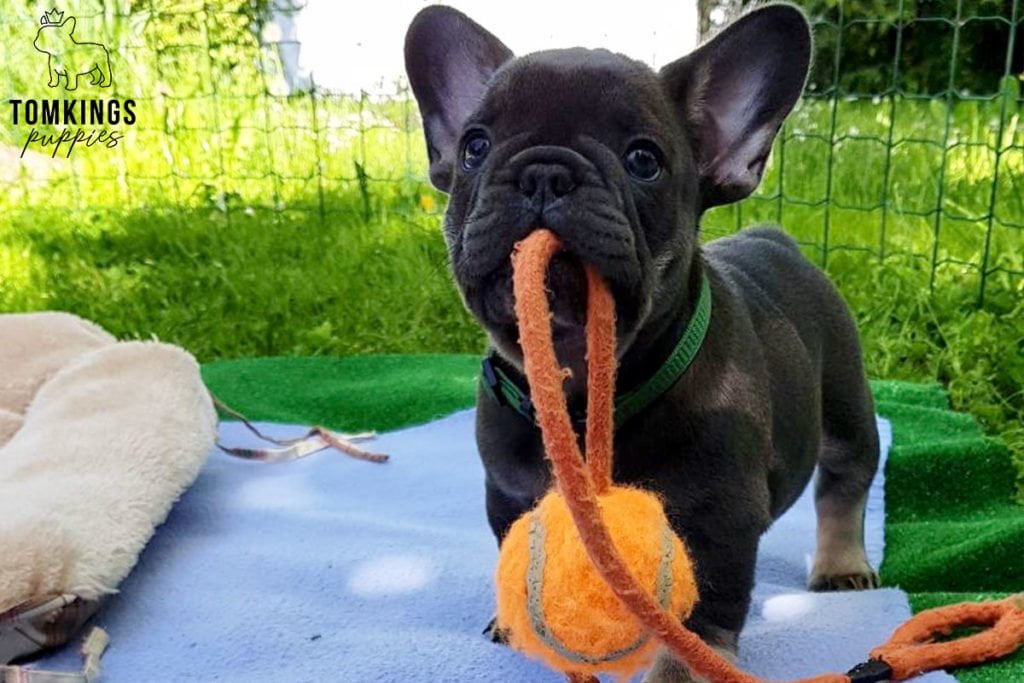

Table of Contents
ToggleTeething in Frenchie puppies
All puppies have 28 baby teeth which they start losing around the age of 12-14 weeks old. You will probably find some of these tiny teeth around the house, but most of them will be swallowed by your fur baby while eating, which is completely normal! You might notice some bleeding as well, which is also harmless and nothing to worry about. Teething usually lasts until they are about 7 months old, and when it’s finally done, your Frenchie will have 42 adult teeth.


Subscribe to our weekly blog newsletter
One of the most obvious signs that your puppy started teething is that they will chew on everything, and by that we mean EVERYTHING. If you want to avoid your new shoe or your favorite furniture getting ruined, we suggest that you put away everything that they could destroy and get them some chew toys, there are countless amazing products on the market that you can choose from. Read our article for further useful tips against chewing.
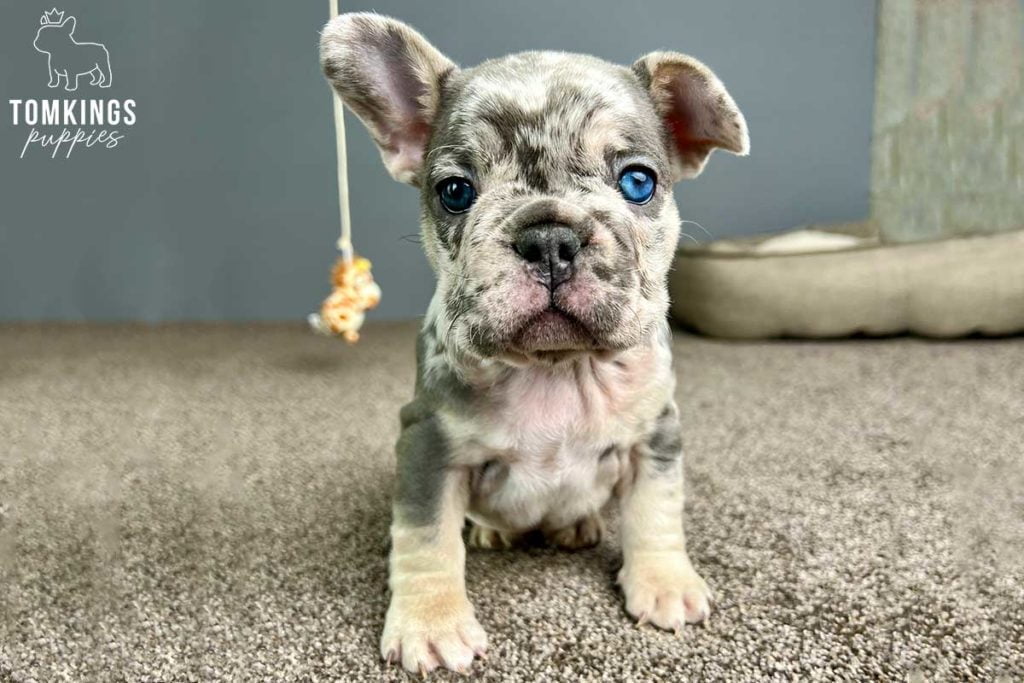

Frenchies usually do quite well during teething, still there might be some issues that may come up in the meantime. Loss of appetite is one of them due to the pain they might experience, so if you notice that your puppy is eating less than normal, it’s recommended to opt for a softer food or soak their dry food in some water.
There are also cases where the baby tooth won’t fall out as the adult tooth doesn’t push it but grows right next to it. If you notice that, it’s recommended to ask for your vet’s advice, they will most probably remove the stuck baby tooth to make room for the adult tooth, so that it can grow without any problem.


Ultimate Guide
to Raising a Frenchie
Cleaning your Frenchie’s teeth
Did you know that oral hygiene is just as important for dogs as it is for humans? Regularly cleaning your Frenchie’s teeth is not only essential to avoid bad breath: a mouth full of bacteria may lead to dental problems like tartar and inflamed gums, as well as some other issues in different parts of their body like the liver and the kidney.


Before you start doing anything, it’s important that your Frenchie gets used to you looking inside their mouth often. Open their mouth slowly and gently, and check if their teeth and gum are all fine. Once you’re done, give lots of praise to your baby! Repeat this often so that later on you can save yourself some biting. Those harmless-looking little teeth can be really sharp!
There are several ways of cleaning your Frenchie’s teeth. Using a toothbrush and toothpaste might come to your mind first, which is definitely an option, although not the most fun one. Make sure that you get a toothpaste which is specifically designed for dogs and is vet-approved! You should never use human toothpaste, as fluoride is a poisonous substance for dogs.
Giving dental chews and sticks to your Frenchie is one of the easiest ways of keeping their teeth clean as they are designed to rub all the plaque away. Puppies usually love chewing on these, so they can be used as an everyday treat after mealtime.


There’s a very healthy alternative to these sticks that we highly recommend: CARROTS! You simply need to peel it and give it to your baby in whole 1-2 times a week. It’s not only an effective tooth cleaner but contains lots of vitamins as well, not to mention it will keep your Frenchie busy for some time.
Dental issues in Frenchies
The most common problem that you may encounter in your Frenchie’s mouth is tartar. Tartar develops when your fur baby’s teeth are not cleaned regularly, and the plaque remaining after meals slowly forms a hard layer on the teeth. You can easily recognize it from its yellow or brownish color, and since it appears close to the gums, it can cause them to get inflamed and even bleed. Bad breath and excessive drooling can also be signs of tartar, as well as loss of appetite in rare cases.


If you notice these signs, it might be time to seek some medical help and get your Frenchie’s teeth professionally cleaned to avoid premature tooth loss. After anaesthetizing your baby, your vet will use ultrasonic scalers to remove the tartar by the gum line and then will polish the teeth.
Loss of teeth in older Frenchies
As your Frenchie ages, you’ll most probably start noticing their teeth slightly loosening up and moving around in their places. With the passage of time, their gum gets inflamed much easier due to the bacteria in their mouth, which will then slowly lead to their gum slowly disappearing around their teeth.
Paying attention to proper dental hygiene detailed above will help to preserve your Frenchie’s teeth and beautiful smile for much longer! If that is something that you haven’t been doing so far, don’t worry! It’s never too late to start.


If you’d like to learn more about Frenchies, join our Facebook group called TomKings Frenchie Family to read our Frenchie parents’ experiences.
The article is based on the expert knowledge of the TomKings Puppies team who have been breeding French Bulldogs for 10 years on their farm. All the pictures in the post belong to them and their customers, and show puppies from their breed. Check their available French Bulldog puppies, or if you have any questions or comments let us know below the article.

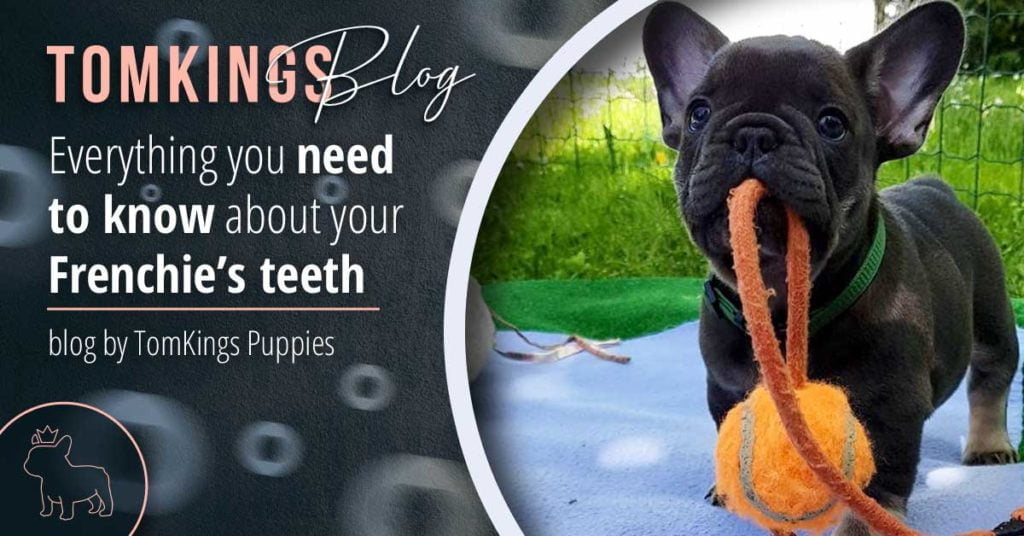










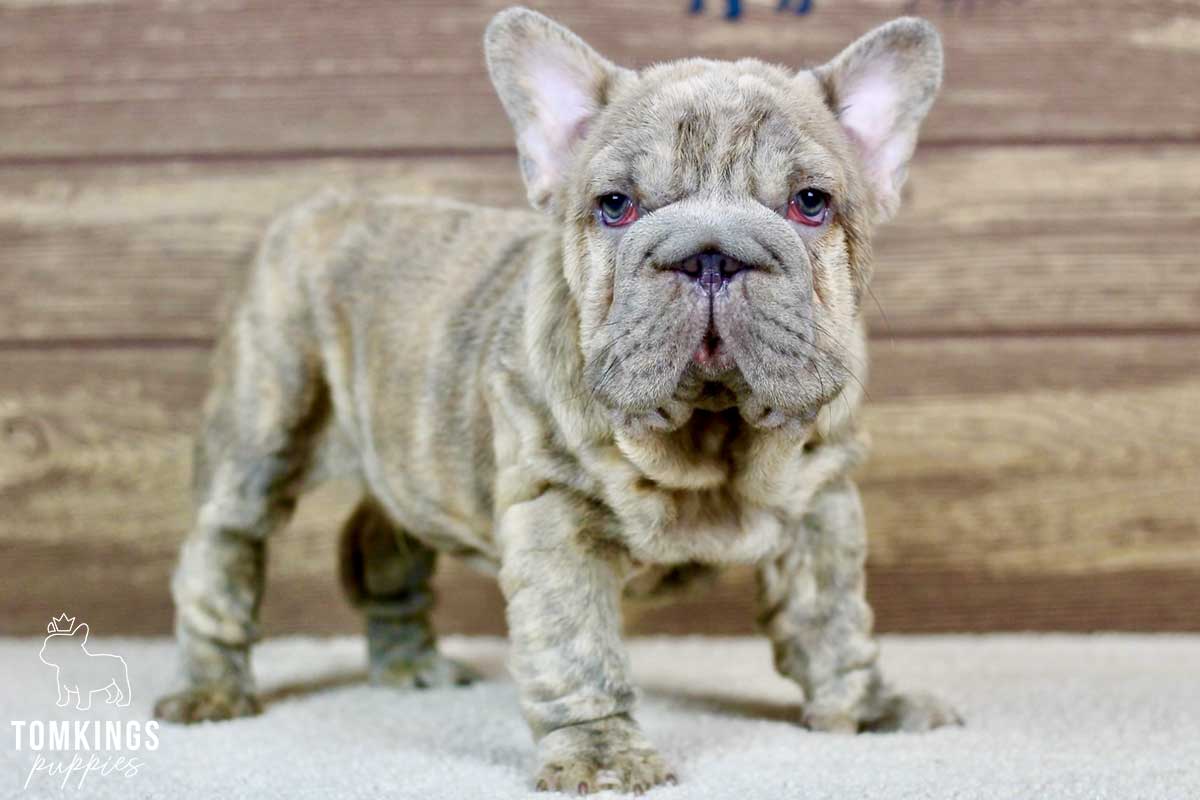
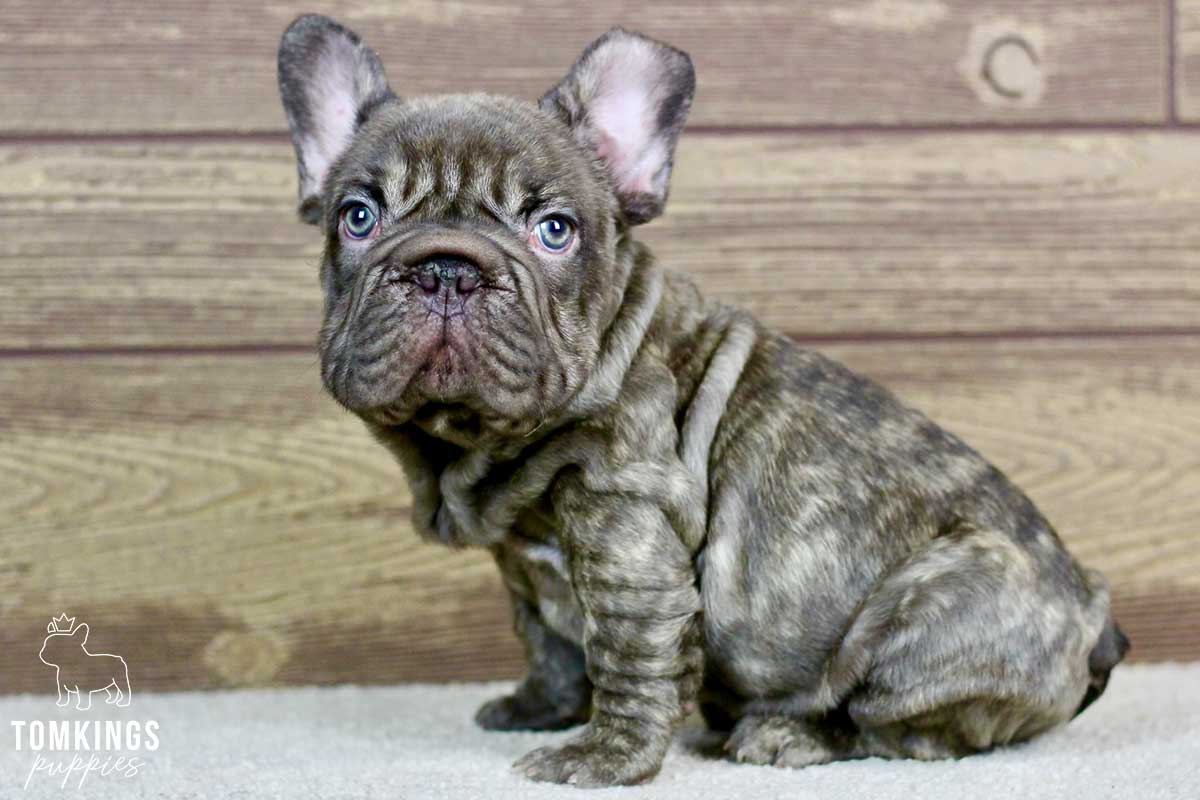





2 thoughts on “Everything you need to know about your Frenchie’s teeth”
I love learning more on the site. So much to know. Reading often about my fur baby, Tucker
He’s used to me – in his mouth. So far strong straight little 8 month old mouth 🤩
Thank you for your kind words Deborah! 🙂 Tucker is so lucky to have you! 🙂